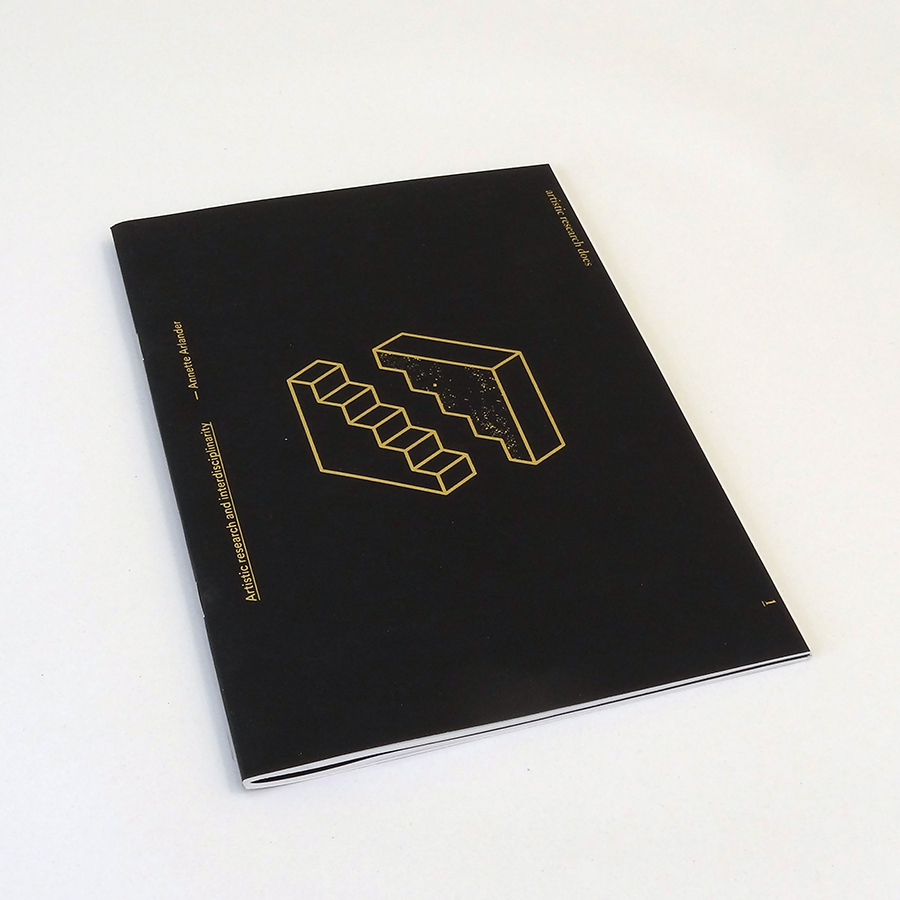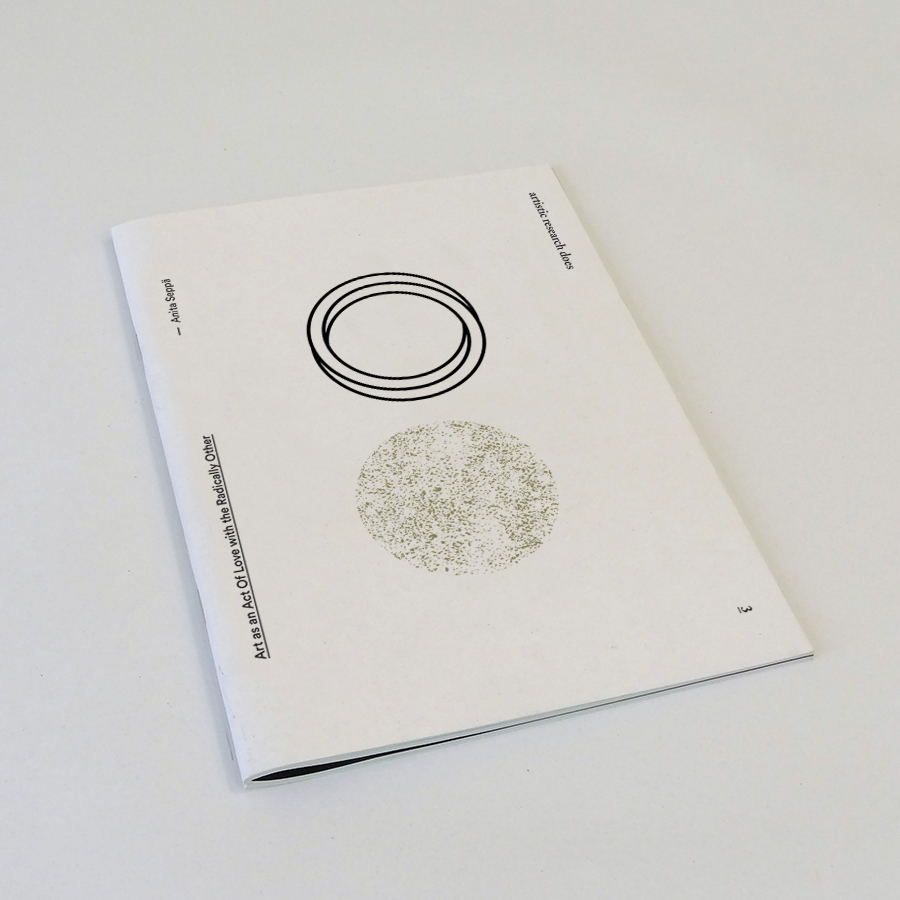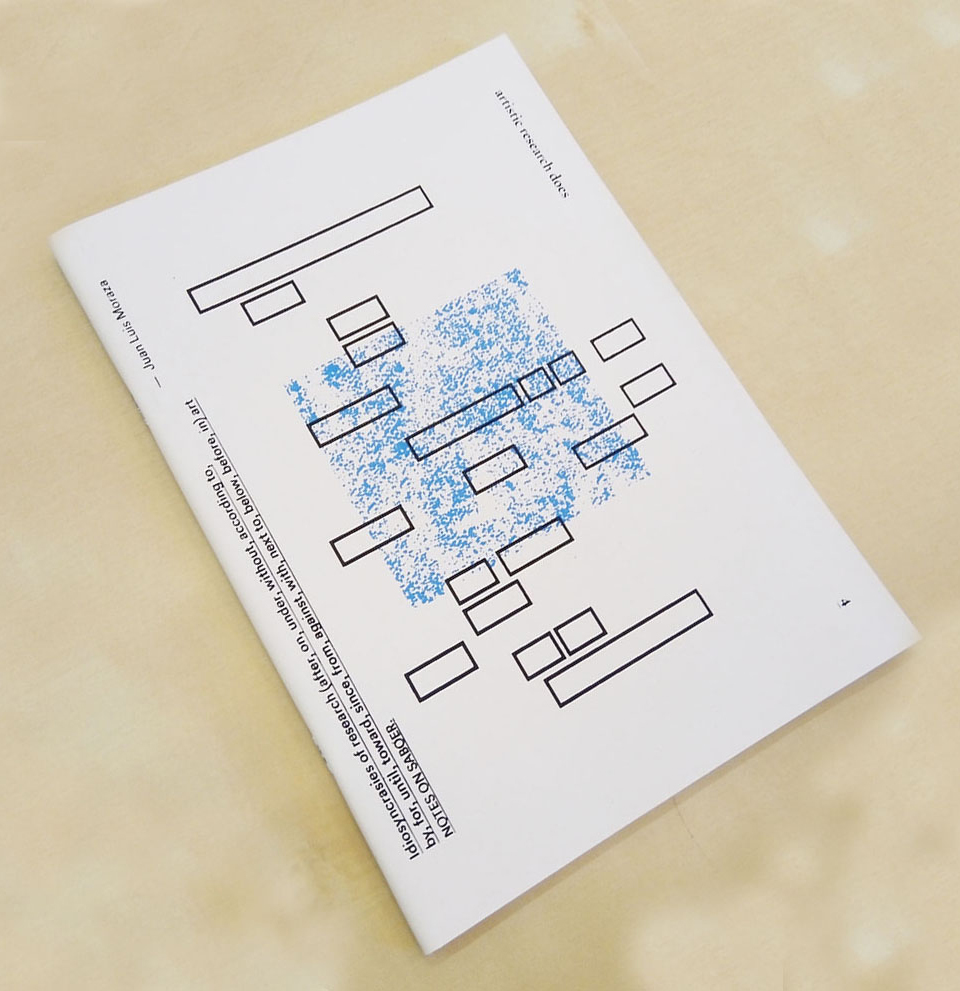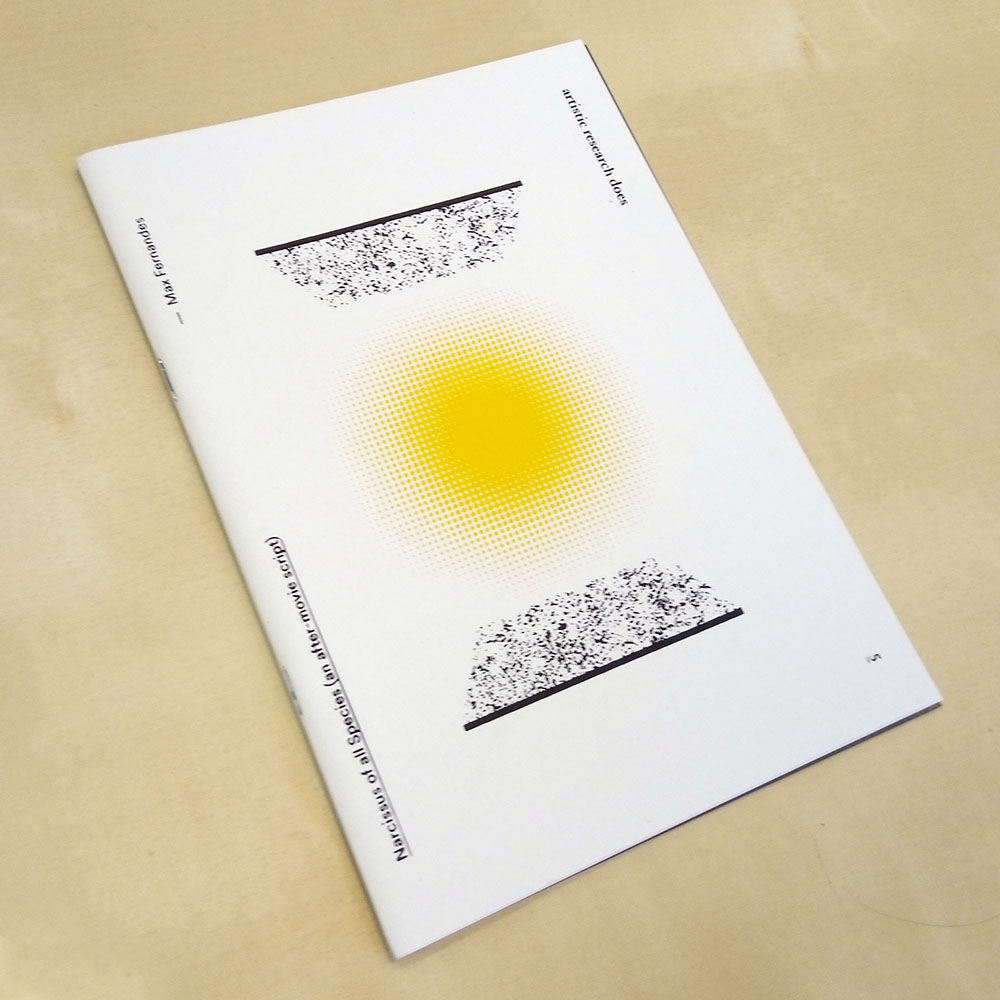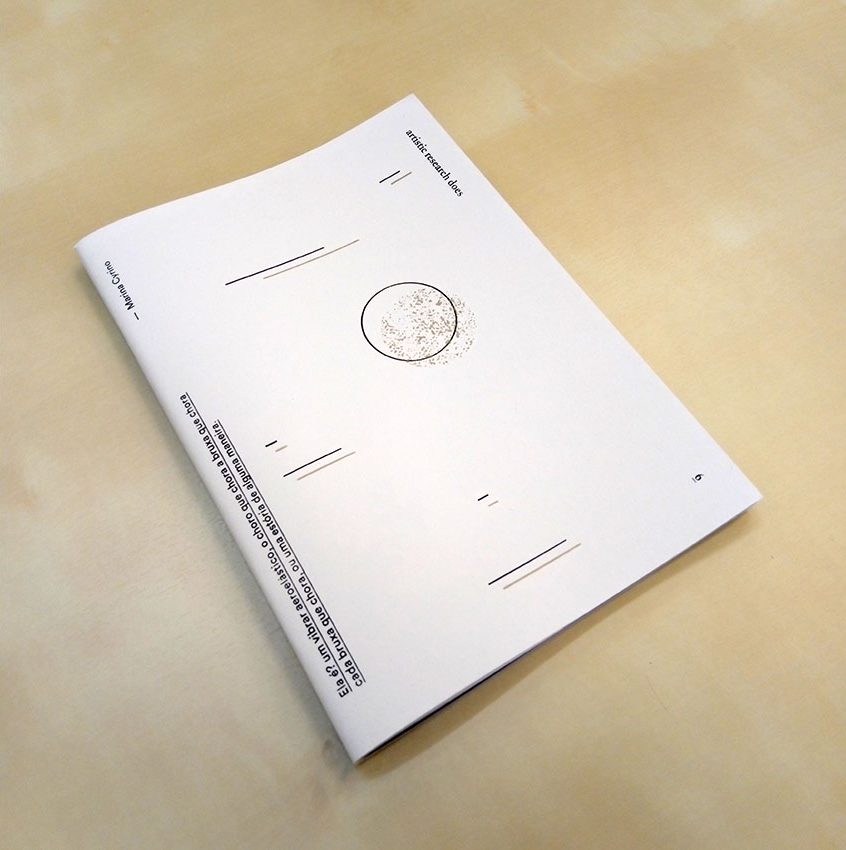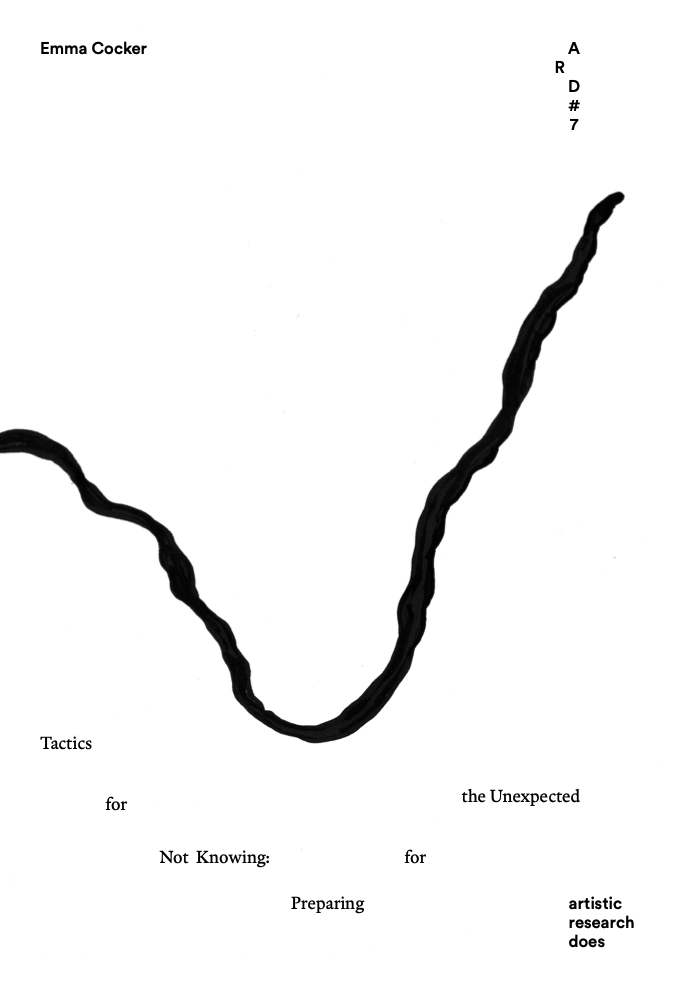
journal
Artistic Research Does #7 — Emma Cocker
What role then has the practising of creative uncertainty and not knowing within the increasingly uncertain conditions of contemporary life? How do we value not knowing now that contemporary life seems so uncertain, so ungrounded, with global socio-political destabilisation, economic collapse and societal unrest reflected at an international, national and local level? How does one resist the nihilistic implications of not knowing — the debilitating sense of having no power or potency, the feeling of there being no purpose or point? How might affirmative forms of not knowing unfold towards an attitude of openness? How might artistic research practices offer tactics for not knowing, where the unknown is actively embraced?
- Edição
- Catarina Almeida, André Alves
- Ano
- 2023
- isbn | issn
- 978-989-9049-54-3
- doi
- https://doi.org/10.34626/2023/978-989-9049-54-3
Prologue
It is a decade since ‘Tactics for Not Knowing: Preparing for the Unexpected’ was first published in On Not Knowing: How Artists Think (Black Dog Publishing, 2013) edited by Elizabeth Fisher and Rebecca Fortnum. ‘Tactics for Not Knowing’ also draws upon experiences and encounters unfolding over many years prior to the writing of the text itself. In many ways the world now appears a very different place — so much seems to have changed (both through acceleration and regression) in the last ten years: environmental crisis, existential crisis, humanitarian crisis, political crisis, economic crisis, educational crisis. Crises in trust, crises in confidence, crises in care, crises in attention […] Too often the response to not knowing and uncertainty — to the experience of precarity, instability, indeterminacy — is one of mitigation, attempting to return to some illusory state of security and stability, of order and control. Or else, the response might be one of affective mobilisation, harnessing others’ fear and uncertainty towards profit and gain. Witness the rise of the political right. Of intolerance. Of fascistic nostalgia. The ever-privatising, individualising tendencies of neoliberalism. What role then has the practising of creative uncertainty and not knowing within the increasingly uncertain conditions of contemporary life? How do we value not knowing now that contemporary life seems so uncertain, so ungrounded, with global socio-political destabilisation, economic collapse and societal unrest reflected at an international, national and local level? How does one resist the nihilistic implications of not knowing — the debilitating sense of having no power or potency, the feeling of there being no purpose or point? How might affirmative forms of not knowing unfold towards an attitude of openness? How might artistic research practices offer tactics for not knowing, where the unknown is actively embraced?
In the last decade, there have also been profound changes in education and in the art school: widespread threats to the arts and humanities, alongside the privileging of STEM subjects and of a particular logical-numerical intelligence deemed necessary for a work environment driven by data management, metrics and measurement, ever-increasing administration and bureaucracy. Yet, how might we value other species of intelligence — those that are creative and critical, inter-personal and intra-personal, linguistic and musical, bodily–kinaesthetic and spatial? Education risks becoming irrevocably instrumentalised, increasingly market-driven — focused more and more on vocational skills and employability, on economic return, and on the production of adaptable and acquiescent worker-consumers. Academic research is tasked with the grand challenges of our times — climate crisis, sustainability, ageing population — and with designing solutions through science, technology and engineering innovation. In parallel, how might research also respond to the crises in curiosity, in attention and in critical-creative thinking, to challenges in the cultural, aesthetic and ethical aspects of life?
In the last ten years, artistic research has become an established field of practice. How might artistic research intervene in and offer new perspectives on the uncertain conditions of contemporary life? Consider art’s dual function of rupture and affirmation — its capacity to take a stand against (to antagonise, to challenge, to critique, to disrupt, to problematise, to protest, to question, to trouble, to unsettle) and in parallel, its potential to take a stand for, to conceive what if, to imagine otherwise. Yet, how to be for in one’s resistance — how to harness the yes of the no?
In these terms, ‘Tactics for Not Knowing’ attempts to be for in its resistance. It is a form of creative-critical prose — or what I describe as “contiguous writing”(1) — which touches upon rather than necessarily being about. In places, the writing edges towards the aphoristic, perhaps even performative: single lines and sentences can be taken as provocations for activating further reflection and enquiry. This is how I have continued to work-with the concerns of the text over the last ten years, returning to specific thought-fragments as points of departure for further artistic research enquiry. In addition to the translation and re-publication of the original text, ‘Tactics for Not Knowing’, this version offers two interventions in the form of annotations. In one column of margin notes, I share additional reflections, referring to some of my more recent artistic research projects and collaborations that continue to resonate with the concerns of the original text. Within these artistic research projects (including Dorsal Practices; Choreo-graphic Figures; The Italic I; No Telos), a central focus has been the development of specific ‘practices’ (for not knowing) often shared through scores, alongside the generation of poetic lexicons that evolve a vocabulary for thinking-with not knowing. Towards practices and poetics of not knowing: my ongoing research involves the dual attempt to bring to reflective awareness the often hidden, concealed or otherwise undisclosed aspects of artistic practice, whilst at the same time, searching for a mode of linguistic expression capable of operating in fidelity to that experience. In parallel, a second column of margin notes comprises the titles of additional pieces of contiguous writing drawn from two collections of writing, The Yes of the No (2016) and How Do You Do? (2023)(2).
Sobre Artistic Research Does
Artistic Research Does is a series of individual takes published on the topic of artistic research, yet anti-ologically designed. It consists of a number of short authored submissions, conceived under investigation and for the occasion, published in the individual booklets, once a month and bilingual-ly (PT/ENG). Since the editors are not native English speakers and thus are unable to provide professional translations, every and each of their efforts to adapt text will be signed at the end so that the interpretative contingency is kept in mind.
